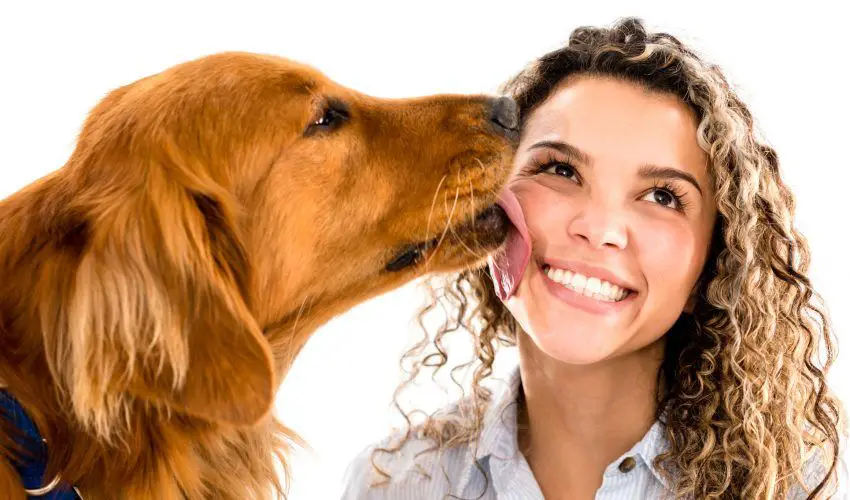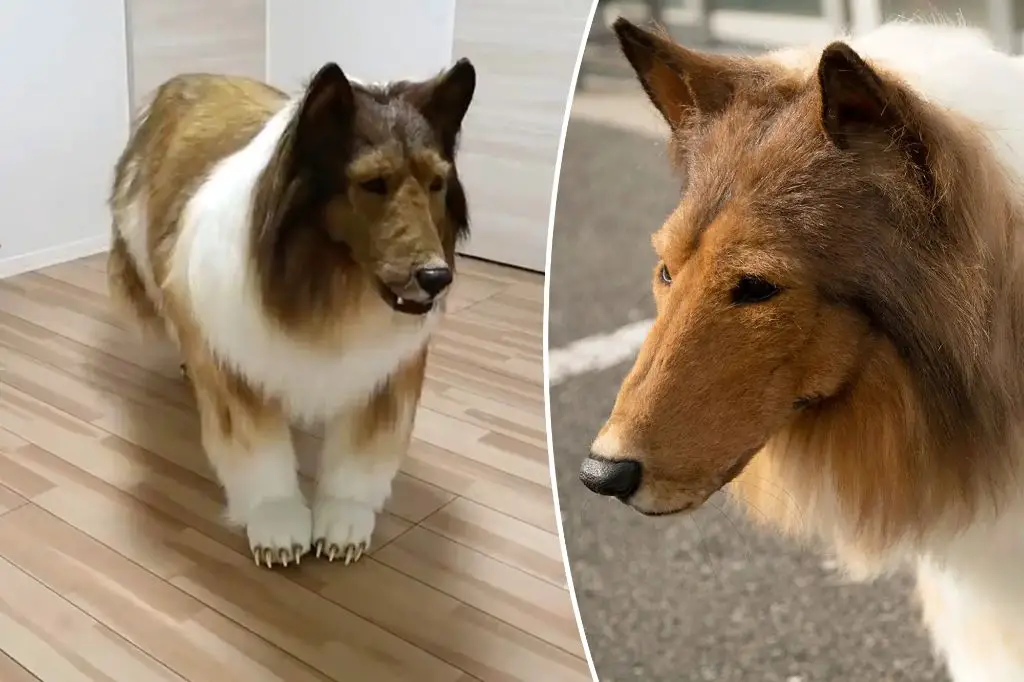Introduction
Loyalty is defined as a strong feeling of support or allegiance to someone or something. Dogs are often considered to be the epitome of loyalty, especially when it comes to their relationships with humans. There is a common perception that dogs demonstrate unwavering devotion and faithfulness to their owners, while humans can be more fickle in their attachments. This perception that dogs are more loyal than humans stems from comparing observations of canine behavior to the complexities of human relationships and emotions. This article will explore some of the reasons why dogs are seen as more loyal than humans.
Dogs Form Strong Bonds
Dogs are naturally inclined to form tight bonds with their human families due to their pack mentality. In the wild, wolves live in close-knit groups for companionship and survival. Domesticated dogs have retained this pack mentality, bonding strongly with their human “pack” for affection and care.
Research shows that when dogs gaze into their owners’ eyes, their brains release oxytocin, the “love hormone” involved in parent-child bonding and romantic attachments. This allows dogs to form powerful connections with their owners. According to Dr. Louann Brizendine, a neuropsychiatrist at the University of California, “Dogs have been selectively bred to pay attention to humans…They bond and communicate with us through eye contact.” Dogs crave this eye contact and focused attention from their humans to reinforce their pack bond.
Dogs Crave Attention
One of the reasons dogs are so loyal is because they thrive on attention from their owners. Dogs are pack animals by nature, so they crave social interaction and affection. When a dog receives positive attention through playing, cuddling, praise, and treats, it strengthens the bond between the dog and its owner.
Dogs will often follow their owners around the house just to be near them. They get excited whenever their owner comes home. Some dogs even suffer from separation anxiety when left alone for long periods of time. They eagerly await the return of their beloved human.
This strong desire for attention and affection from their human companions helps fuel a dog’s loyal nature. Dogs that receive plenty of quality time and interaction with their owner are less likely to roam or misbehave. The attention satisfies their social needs and solidifies the dog-human bond.
Dogs Forgive Easily
One of the most endearing qualities of dogs is their immense capacity to forgive. Whereas humans may hold grudges against friends, family, and partners for weeks, months or even years, dogs exhibit no such tendency.
Once a perceived wrong has been righted, dogs will welcome that person back into the fold, no questions asked. They don’t hold on to resentment or anger. A simple apology in the form of a belly rub, a treat or a walk is all it takes for dogs to forgive their owners for even major transgressions.
There are no drawn out discussions, no dredging up of past issues, no proving of trustworthiness. Dogs live in the moment and accept apologies and affection as genuine. Their forgiving nature allows dogs and owners to move on from disagreements quickly.
This forgiving tendency is likely due to their deep need for companionship. Whereas humans can find fulfillment in any number of ways, most dogs only want affection from their owners. This motivates them to forgive fast and rebuild that connection.
Dogs Remain Loyal
One of the most remarkable things about dogs is their unwavering loyalty. Once they form a strong bond with their human, they will remain devoted no matter what. Dogs don’t hold grudges or act out of spite like humans sometimes do.

Dogs will wait faithfully for their owner’s return if they leave for extended periods. There are many stories of dogs waiting daily at train stations or airports for owners who have passed away or moved away. The loyalty of dogs persists whether the owner is gone for a few hours or never returns. Their love and allegiance don’t diminish over time or distance.
This degree of faithfulness is rare among humans. People tend to prioritize their own needs and desires. They may lose interest in friends or partners after a separation. But dogs selflessly devote themselves to their most treasured people. Once you have a dog’s loyalty, you have it for life.
Dogs Sense Emotions
Dogs have a remarkable ability to sense human emotions. Their powerful sense of smell allows them to detect physiological changes associated with mood shifts. Studies show dogs can identify traces of stress hormones in human sweat. They are also highly visual creatures who carefully observe human body language and facial expressions.
When their owners are sad, anxious, or experiencing trauma, dogs often respond with comforting behaviors. They may nuzzle up close, lick faces, nap nearby, or simply offer the soothing presence of a faithful companion. This emotional support provides significant comfort and stress relief for struggling pet owners.

In contrast, humans are not nearly as skilled at picking up emotional cues from others. While we can sometimes detect obvious signs of anger, sadness or fear, human emotions are often complex and layered in ways dogs intuitively understand. A dog’s natural empathy and emotional intelligence contributes greatly to their unwavering loyalty.
Humans Can Be Fickle
One of the key differences between dogs and humans when it comes to loyalty is that humans can be fickle in their relationships. Where a dog will remain devoted to its owner for life, humans may lose interest in friends or romantic partners over time as their priorities and interests change. Humans are complex creatures with free will, so their attachments to other humans can fluctuate or weaken based on any number of factors.
For example, two close childhood friends may drift apart once they reach adulthood and no longer share common interests or values. Or one partner in a romantic couple may fall out of love once the initial infatuation fades. Humans also tend to prioritize themselves and their own needs first, which can lead to diminished loyalty in relationships when circumstances change. A dog’s loyalty stems from pure, unconditional love for its human, while human loyalty is far more conditional and open to flux.
This is not to say humans are incapable of profound loyalty and devotion. But human connections inevitably go through ebbs and flows, whereas a dog’s love remains constant. So when judging the comparative loyalty between dogs and humans, the stability and unwavering nature of a dog’s faithfulness gives them the advantage.
Humans Prioritize Selves

While a dog’s loyalty is unwavering, humans tend to put their own needs and desires first, even at the expense of close companions. Humans are naturally self-interested and will prioritize their comfort, career, relationships, and other desires over maintaining loyalty. This manifests in many ways – choosing to move away and leave a friend behind for a new job opportunity, sacrificing time with family to further one’s own agenda, or leaving a partner when someone new comes along. Dogs, on the other hand, stick with their human companion through thick and thin, never wavering in loyalty for their own gain. They offer affection freely and without condition, content simply to be by their human’s side. This ability to put others first above one’s own interests is a key distinction between canine and human loyalty.
Humans Hold Grudges
A major difference between dogs and humans when it comes to loyalty is that humans have a much harder time forgiving betrayals or mistakes. If a friend accidentally breaks a belonging, doesn’t show up for an important event, or shares a harmful rumor, humans are prone to holding long-term grudges. The emotional pain makes it challenging to restore trust and move on after a major transgression. Dogs, on the other hand, are quick to forgive once an apology or correction has been made. Their capacity for unconditional love allows them to mend broken bonds relatively easily. For humans, the sting of disappointment often lingers, making way for resentment and distance to grow within relationships. This contrasts sharply with dogs, who will enthusiastically greet an absent owner as if nothing ever went wrong. The canine willingness to give second chances is an example of loyalty that humans could stand to learn from.

Conclusion
In summary, there is strong evidence that dogs can often be more loyal companions than humans. Dogs naturally form strong bonds and attachments with their owners. They crave affection, attention, and approval from their owners. Dogs are quick to forgive mistreatment and will remain devoted to their humans despite being neglected or abused at times. Their loyalty persists even when humans are fickle, prioritize their own needs first, and hold grudges against dogs or family members. While the human capacity for loyalty should not be underestimated, dogs set the bar high when it comes to unwavering fidelity, patience, and lasting commitment to the pack.